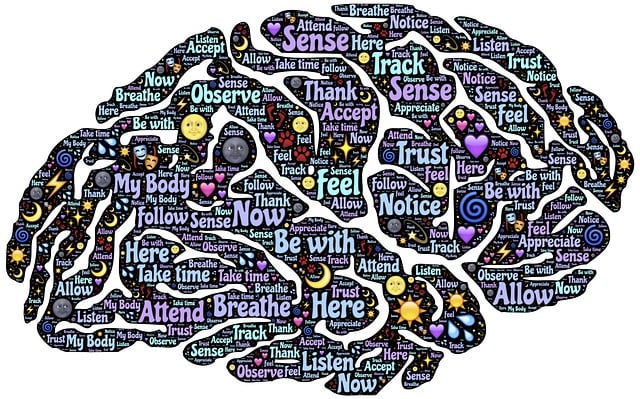Denver Gender-Affirming Care Therapy offers a specialized approach to social skills training for individuals with mental health conditions, addressing the unique impact of gender identity on social and emotional well-being. Through compassion cultivation practices, clients develop kindness and understanding, reducing trauma and isolation. The program equips them with confidence, effective communication, emotional regulation, assertiveness, and self-care tools for managing their mental health in daily life. By fostering community and reducing stigma, Denver Gender-Affirming Care Therapy enables sustained skill application and long-term mental wellness improvements.
Social skills training is a powerful tool for individuals navigating mental health conditions, offering a path to improved wellbeing and enhanced quality of life. This comprehensive guide explores the significance of social interactions in mental health recovery, focusing on the innovative approach of Denver Gender-Affirming Care Therapy. We’ll delve into common challenges, effective strategies, and measurement techniques, providing insights into how this therapy supports long-term success for those struggling with their mental health.
- Understanding the Importance of Social Skills for Mental Health
- The Role of Denver Gender-Affirming Care in Social Skills Training
- Identifying Challenges: Common Mental Health Conditions and Social Interaction
- Strategies for Effective Social Skills Training
- Measuring Success and Continued Support for Long-Term Wellbeing
Understanding the Importance of Social Skills for Mental Health

Social skills are a cornerstone of mental well-being, often overlooked yet profoundly impactful. In the context of Denver Gender-Affirming Care Therapy, understanding and cultivating these skills can significantly enhance the lives of individuals navigating mental health conditions. Many mental illnesses are exacerbated by social isolation or stigma, making effective communication and interaction essential for recovery.
Denver Gender-Affirming Care Therapy focuses on providing a safe space where clients can learn and practice social skills, thereby fostering better connections and reducing the impact of mental illness stigma reduction efforts. Compassion cultivation practices, often integrated into such therapies, teach individuals to respond with kindness and understanding to themselves and others—a powerful tool against trauma support services and the negative effects of isolation.
The Role of Denver Gender-Affirming Care in Social Skills Training

Denver Gender-Affirming Care Therapy offers a unique and specialized approach to social skills training, tailored to meet the specific needs of individuals navigating mental health conditions. This innovative care model recognizes the profound impact of gender identity and expression on social interactions and emotional well-being. By creating a safe and supportive environment, therapists facilitate a deep exploration of social dynamics and encourage the development of coping skills essential for managing stress and anxiety in various social contexts.
The therapy focuses on empowering individuals to build confidence and improve their ability to connect with others. Through structured yet flexible curricula, clients learn effective communication strategies, emotional regulation techniques, and assertiveness skills, fostering better relationships and enhancing overall mental health. Additionally, the program promotes self-care routine development, ensuring that individuals gain practical tools for managing their mental health in day-to-day life, including stress management and mindfulness practices.
Identifying Challenges: Common Mental Health Conditions and Social Interaction

Mental health conditions can significantly impact an individual’s ability to engage in social interactions, leading to various challenges in daily life. Common disorders such as anxiety, depression, and bipolar disorder often manifest in ways that affect social skills. For example, individuals with anxiety might struggle with initiating conversations or maintaining eye contact, while those with depression may withdraw from social activities entirely. These social impairments can further isolate people, exacerbating their conditions.
In Denver, gender-affirming care therapy has emerged as a vital resource for addressing these challenges. This specialized approach focuses on providing comprehensive support to individuals navigating gender dysphoria or transitioning. By incorporating self-care practices tailored to each patient’s needs, healthcare providers can enhance their cultural competency training, ensuring they understand the unique social and emotional aspects of various mental health conditions. Stress management workshops and similar organization-led initiatives also play a crucial role in empowering individuals to overcome barriers and foster healthier social connections.
Strategies for Effective Social Skills Training

Social Skills Training plays a pivotal role in supporting individuals with mental health conditions navigate their daily lives more effectively. At Denver Gender-Affirming Care Therapy, we employ tailored strategies to ensure these skills are not only learned but also integrated into our clients’ day-to-day routines. One of the key approaches involves Coping Skills Development, focusing on teaching practical techniques to handle stress and difficult emotions. This includes mindfulness exercises, relaxation strategies, and cognitive reframing, empowering individuals to better manage their mental health in social settings.
Additionally, our Stress Management Workshops Organization facilitates group sessions that foster a sense of community while addressing common challenges. These workshops not only equip participants with advanced coping mechanisms but also enhance their ability to engage socially without feeling overwhelmed. Furthermore, Public Awareness Campaigns Development is another crucial aspect of our program. By raising awareness about mental health and the importance of social skills, we aim to reduce stigma and promote understanding, ultimately creating a more inclusive environment for everyone.
Measuring Success and Continued Support for Long-Term Wellbeing

Measuring success in social skills training is an ongoing process that goes beyond initial improvements. It involves tracking progress over time and ensuring individuals with mental health conditions, especially those seeking Denver Gender-Affirming Care Therapy, maintain newly acquired skills in their daily lives. This long-term support is crucial for sustainable mental wellness. Therapists can use various methods to assess this, such as regular check-ins, self-reported progress, and structured interviews.
The Mental Wellness Podcast Series Production can highlight success stories, providing inspiration and a sense of accomplishment. Moreover, Compassion Cultivation Practices and Cultural Sensitivity in Mental Healthcare Practice are essential components of comprehensive care. These approaches foster a supportive environment, encouraging individuals to continue their journey towards better mental health and social integration.
Social skills training is a powerful tool in enhancing mental health, as it empowers individuals with the ability to navigate social interactions confidently. As demonstrated by Denver Gender-Affirming Care Therapy, specialized programs can significantly improve outcomes for those dealing with various mental health conditions. By addressing challenges unique to each individual and employing effective strategies, such as role-playing and peer support, these training sessions foster a sense of belonging and resilience. Through continuous measurement and long-term support, individuals equipped with enhanced social skills can lead more fulfilling lives, breaking down barriers and promoting overall wellbeing in diverse communities.














